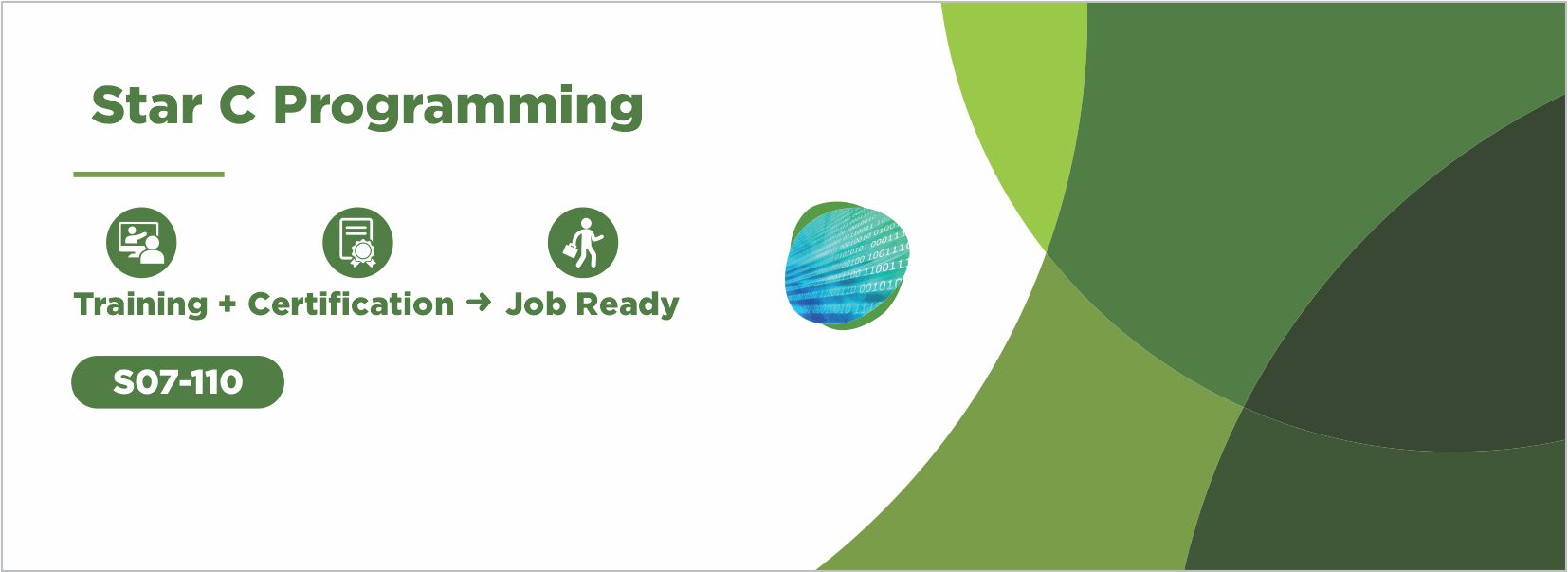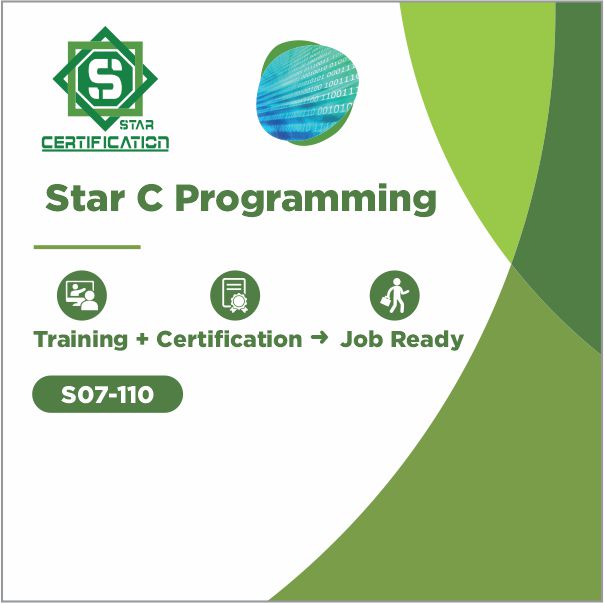C Programming
C Programming is one of the oldest programming languages around and despite the prevalence of higher-level languages, it continues to empower the world. C is a general-purpose language, ideal for building mostly state-of-the-art system applications like OS kernels, databases, embedded systems, and graphics packages that are used by billions around the world.
The Star C Programming course introduces the learners to C programming language, which is a starting level for getting into programming. It starts from programming basics and gives a holistic view of the C Programming language, detailing all the aspects of the C language from data types, to operators and expressions, to if statements, further to loops, arrays, strings and pointers. The course also provides hands-on training to help you write and test your coding skill, and prepare you for real-life application.
Audience
- Beginner to Intermediate
C Programming Course Objectives
In this course, you will learn about:
- Programming basics and the fundamentals of C
- Data types in C
- Mathematical and logical operations
- Using if statement and loops
- Arranging data in arrays
- Implementing pointers
- File management and dynamic memory allocation
Course Outcome
After competing this course, you will be able to:
- Develop a C program
- Control the sequence of the program and give logical outputs
- Implement strings in your C program
- Store different data types in the same memory
- Manage I/O operations in your C program
- Repeat the sequence of instructions and points for a memory location
- Apply code reusability with functions and pointers
- Understand the basics of file handling mechanisms
- Explain the uses of pre-processors and various memory models
Table of Contents outline
- Fundamentals of Programming
- Exploring C Programming
- Classifying Data using Data types in C Programming
- Managing Input and Output Operations.
- Performing Mathematical and Logical functions: Operators and Expressions
- Controlling the Program Order: Decision Making
- Repeating Sequence of Instructions: Loops
- Arranging the Same Data Systematically: Arrays
- Characters Arrays
- Group of Statements: Functions
- Storing Different Data Types in Same Memory: Structures and Unions
- Pointing to a Location: Pointers
- File Management in C
- Dynamic Memory Allocation and Linked List
- Non-Executable Special Lines: Pre-processor Directives
- C IDEs and Basic Guidelines
- Labs





